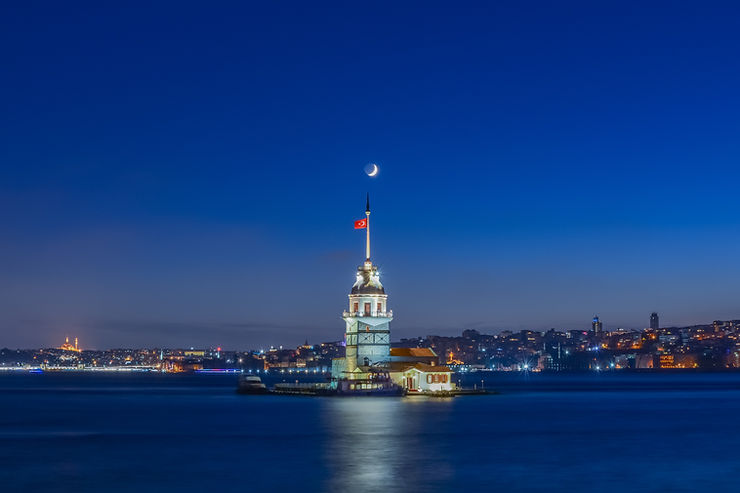Turkish history
- Roza Aksoy

- Apr 21, 2023
- 5 min read
Updated: May 8, 2023

The House of Roza operates as an Airbnb management company in Istanbul. My aim with this post is to address some of the frequently asked questions about Turkish history for tourists who are planning a trip to Türkiye.
How did the Ottoman Empire rise to power?
The Ottoman Empire emerged in the late 13th century in present-day Türkiye. The empire's rise to power can be attributed to several factors. One of the key factors was the military prowess of the Ottomans. The Ottoman army was composed of elite soldiers called Janissaries who were trained from a young age and were extremely skilled in warfare.
Another factor that contributed to the Ottoman Empire's rise was its location. The Ottomans were situated at the crossroads of Europe, Asia, and Africa, which made them a hub for trade and commerce. They also controlled important trade routes, which allowed them to amass great wealth and expand their territory.
The Ottomans were also known for their religious tolerance, which allowed them to unite people of different faiths under their rule. This helped to create a stable and diverse society, which in turn contributed to the empire's longevity.
Finally, the Ottoman Empire maintained its power through a strong central government and a system of efficient administration. This allowed them to govern a vast and diverse empire and maintain control over their territories for centuries.
What were the causes of the fall of the Ottoman Empire?
Several reasons led to its decline, including external pressures such as European imperialism and internal factors such as corruption and economic instability.
One of the main external factors was the rise of European powers, which pressured the Ottoman Empire's territories and weakened its hold on key trade routes. This led to a decline in the empire's economic power and its ability to maintain its military strength.
Internally, the Ottoman Empire was plagued by corruption and mismanagement, which led to economic instability and social unrest. The government was unable to address these issues effectively, which further weakened its legitimacy and authority.
Additionally, the empire was composed of diverse ethnic and religious groups that had conflicting interests, which led to tensions and rebellions. These factors, combined with external pressures, contributed to the Ottoman Empire's eventual collapse and the emergence of modern Türkiye.
What is the role of Islam in Turkish history?
Islam has played a significant role in Turkish history. It was introduced to the region during the 7th century, and over time, it became the dominant religion in Türkiye.
The conversion of the Turks to Islam in the 10th century played a crucial role in forming the Turkish identity. Islam became a unifying factor that brought together the various Turkic tribes, and it helped to create a shared sense of culture and identity.
During the Ottoman Empire, Islam played a central role in the empire's governance and society. The Ottomans were known for their religious tolerance, and they allowed people of different faiths to practice their religion freely. However, Islam remained the dominant religion, and it was the foundation of the Ottoman legal system.
Today, Türkiye is a secular country, but Islam continues to play an important role in Turkish society. The majority of the population is Muslim, and many of Turkey's cultural traditions and customs are rooted in Islamic practices.
What is the relationship between Türkiye and Greece?
A long history of tensions and conflicts has characterized the relationship between Türkiye and Greece. The two countries share a complex and often contentious relationship due to various political, territorial, and historical issues.
One of the main points of contention between the two countries is the dispute over Cyprus. Türkiye invaded Cyprus in 1974 and still maintains a military presence in the northern part of the island, which is not recognized by the international community. Greece and Cyprus have long been seeking a peaceful resolution to this conflict.
Another source of tension between the two countries is their competing claims over the Aegean Sea. Both countries claim ownership of various islands and islets in the Aegean, which has led to several conflicts in the past.
In recent years, efforts have been made to improve relations between Türkiye and Greece. The two countries have engaged in diplomatic initiatives, including confidence-building measures, dialogue, and negotiations. However, tensions still exist between the two countries, and the relationship remains complex and sensitive.
What is the role of women in Turkish society?
The role of women in Turkish society has evolved significantly over the years. Women in Türkiye have made great strides toward gender equality in education, employment, and politics.
Historically, Turkish society was patriarchal, and women's roles were primarily confined to the domestic sphere. However, with the establishment of the Turkish Republic in 1923, women were granted legal equality with men, including the right to vote and to hold political office.
In recent years, there have been significant improvements in women's rights in Türkiye. Women now have access to education, and there has been a notable increase in the number of women in the workforce. However, despite these advances, women in Türkiye still face challenges such as gender-based violence and discrimination.
The government has implemented various policies and initiatives to improve gender equality, such as the National Action Plan for Gender Equality and the Law on the Protection of Family and the Prevention of Violence Against Women. However, the effectiveness of these measures has been debated, and there is still a long way to go to achieve full gender equality in Türkiye.
What are the challenges facing Türkiye today?
Türkiye is facing several challenges today, including:
A struggling economy: Turkey has been struggling recently with high inflation and unemployment. The country is also facing a current account deficit, meaning it is spending more money than it brings in.
A refugee crisis: Türkiye is home to millions of refugees, including Syrian refugees who fled the civil war in their country. The refugee crisis has put a strain on Turkey's resources and has also led to social tensions.
A security threat: Türkiye is also facing a security threat from terrorist groups such as the Kurdistan Workers' Party (PKK) and the Islamic State of Iraq and the Levant (ISIL). These groups have carried out attacks in Turkey, and the government has responded with a crackdown on dissent.
A deteriorating relationship with the European Union: Turkey's relationship with the European Union has deteriorated in recent years. The EU has been critical of Turkey's human rights record and its crackdown on dissent. Türkiye, for its part, has been critical of the EU's handling of the refugee crisis.
A divided society: Türkiye is a divided society, with deep divisions between secularists and Islamists and between Turks and Kurds. The government's crackdown on dissent has exacerbated these divisions.
What is the future of Turkiye?
Turkiye has a young and growing population, a strategic location between Europe and Asia, and a diverse economy with strong sectors in tourism, manufacturing, and finance. The country has also made significant investments in infrastructure, including transportation and energy projects.
However, Türkiye also faces several challenges, including political tensions, economic uncertainty, and security concerns. The country's human rights record and its relations with the international community have also been a source of concern.
Ultimately, the future of Türkiye will be shaped by various factors, including its domestic politics, its relationships with other countries in the region and beyond, and its ability to address its economic and social challenges.
Comentarios